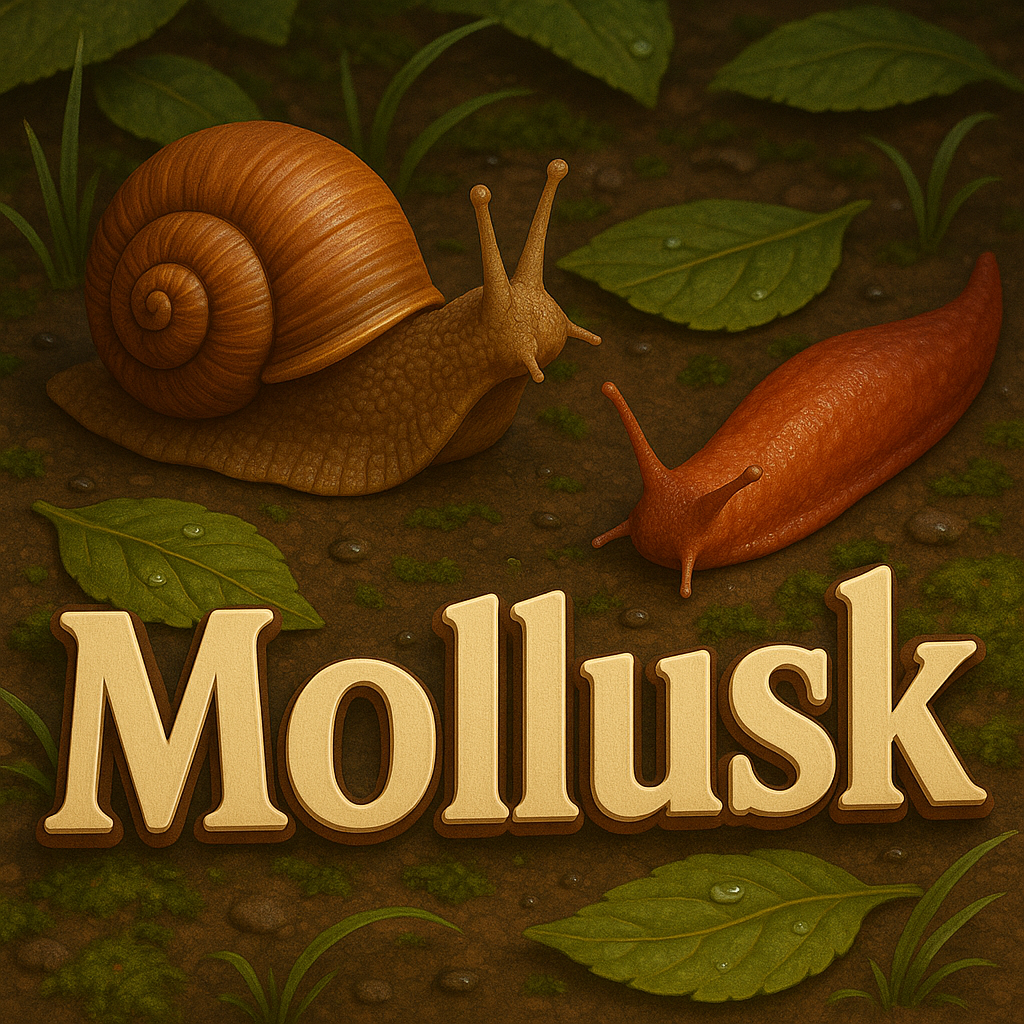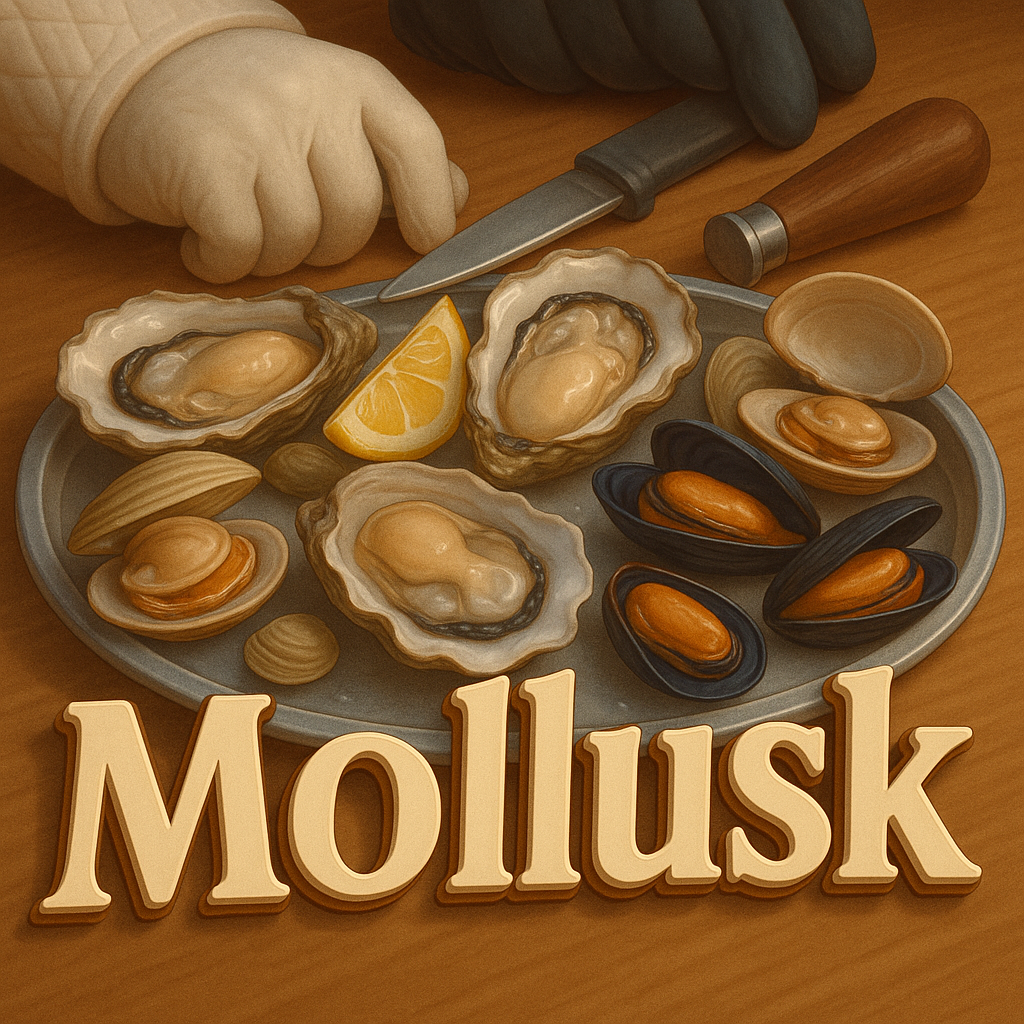Mollusk
Definition
Mollusk (also spelled mollusc) refers to any member of the large phylum Mollusca of invertebrate animals, characterized by a soft body often protected by a hard shell; it includes snails, clams, squid, and octopuses. Its plural form is mollusks (or molluscs).
Parts of Speech
- Noun
Pronunciation
American English
- IPA: /ˈmɑː.ləsk/
- Respelling: MAH-lusk
British English
- IPA: /ˈmɒl.ʌsk/ or /ˈmɒl.əsk/
- Respelling: MOL-usk
Etymology
Late 17th century: from French mollusque, from Latin molluscus ‘soft,’ from mollis ‘soft’.
Derivatives
- molluscan (adjective)
- molluscan (noun: a mollusk or mollusc specialist)
- molluscology (noun)
Synonyms
- univalve (subset: snails)
- bivalve (subset: clams, oysters)
- cephalopod (subset: octopus, squid)
Antonyms
- vertebrate
- arthropod
Usage
"The tide pool teemed with small mollusks like snails and limpets."
"Researchers study mollusks to understand evolutionary adaptations of soft-bodied animals."
Related Terms
- Mollusca: The phylum comprising all mollusks.
- Bivalvia: The class of bivalve mollusks (clams, mussels, oysters).
- Gastropoda: The class of gastropods (snails, slugs).
- Cephalopoda: The class of cephalopods (octopuses, squids).
- Exoskeleton: A hard outer shell in many mollusks.
Detailed Definitions
Noun
- An invertebrate animal of the phylum Mollusca – featuring a soft body, often with a calcareous shell.
- Example: "Snails and slugs are common terrestrial mollusks."
- A member of various mollusk classes:
- Gastropod: Snails and slugs with a single shell or none.
- Example: "Garden mollusks include snails that feed on plants."
- Bivalve: Clams, oysters, scallops with two-part shells.
- Example: "The chef shucked fresh mollusks for the seafood platter."
- Cephalopod: Octopuses, squids with tentacles and a reduced or internal shell.
- Example: "Squid and octopus are cephalopod mollusks prized for their intelligence."
- Gastropod: Snails and slugs with a single shell or none.
Mollusk








